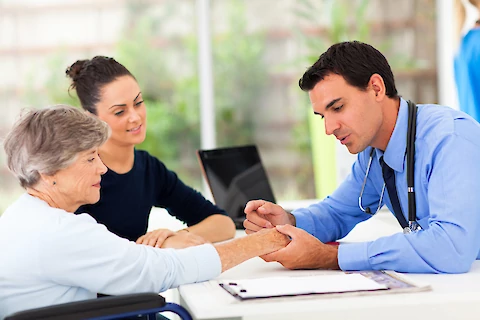
Melanoma is a serious skin cancer that affects many seniors. You need to understand the risk factors and take preventive measures. Discover the most common and impactful risk factors for melanoma, and learn the essential steps you can take for long-term skin health and cancer prevention.
Common Melanoma Risk Factors
Age plays a significant role, as the risk increases as we grow older. A family history of melanoma also increases your chances of developing the condition, so discuss this with your doctor. Sun exposure is another contributor, particularly if you've experienced severe sunburns or have spent considerable time in the sun throughout your life. Skin type is also a factor, with fair-skinned individuals at a higher risk. Additionally, having numerous moles or a weakened immune system could put you at an increased risk of melanoma.
Long-Term Skin Health and Cancer Prevention
Some vital preventive measures you can take to protect your skin and reduce the risk of melanoma include:
Properly Scheduled Skin Cancer Screenings
Early detection of melanoma is critical, so schedule regular skin cancer screenings with your healthcare provider. These screenings typically involve a visual examination of your skin by a dermatologist, looking for any unusual moles or growths. It's recommended that adults over 50 have a skin cancer screening annually, or more frequently if they have any risk factors.
Sun Protection
Protecting your skin from the sun is crucial in reducing your risk of melanoma. When spending time outdoors, apply a broad-spectrum sunscreen with an SPF of 30 or higher on all exposed skin. Remember to reapply every two hours or after swimming or sweating. Wearing protective clothing, such as wide-brimmed hats, sunglasses, and long sleeves, can also shield your skin from the sun's harmful rays. Whenever possible, seek shade and avoid spending extended periods outside during peak sun hours, typically between 10 a.m. and 4 p.m.
Healthy Lifestyle Choices
Adopting a healthy lifestyle can also contribute to better skin health and reduced cancer risk. Eating a balanced diet rich in fruits, vegetables, and lean proteins will provide you with essential nutrients to support your skin's health. Engaging in regular exercise and maintaining a healthy weight can also positively impact your overall well-being. Furthermore, avoiding tobacco and limiting alcohol consumption can lower your risk of developing various cancers, including melanoma.
Self-Examination
In addition to professional screenings, regularly conducting self-examinations of your skin is crucial for the early detection of melanoma. Look for any new or changing moles, unusual growths, or skin discolorations. If you notice any changes, consult your healthcare provider for further evaluation.
Senior Helpers Stillwater Provides Transportation to Skin Cancer Screenings
Understanding your melanoma risk factors and taking preventive measures are crucial steps in maintaining long-term skin health. We encourage you to take charge of your skin's well-being by scheduling regular screenings, protecting yourself from the sun, making healthy lifestyle choices, and staying vigilant with self-examinations. If you're a resident in Stillwater, Bayport, North St. Paul, Forest Lake, Hugo, or Scandia, consider reaching out to Senior Helpers Stillwater for assistance and support in navigating your melanoma risk and prevention journey.